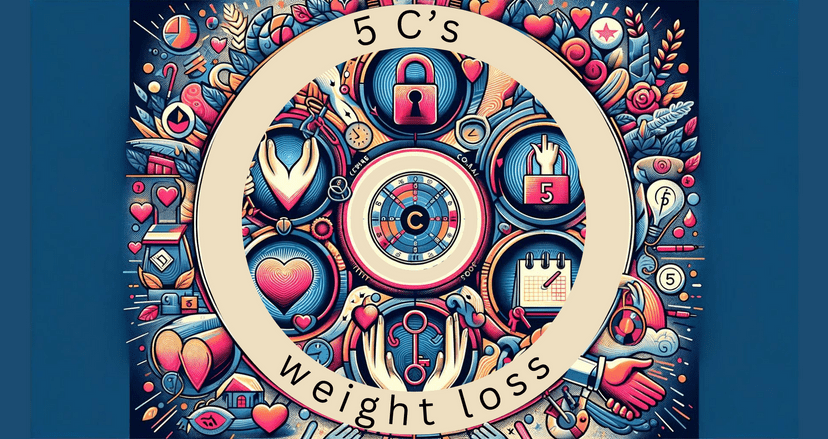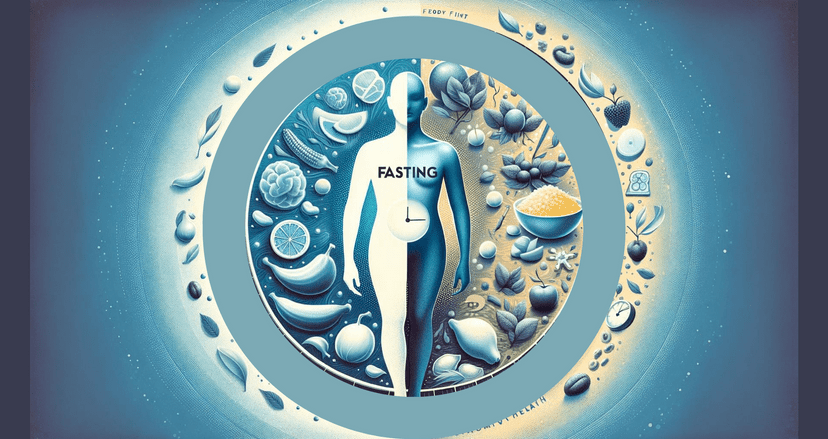What to do now you've hit your weight goals?

Maintaining Your Weight Loss
When you've worked hard and achieved your weight loss goals, it's a cause for celebration. But the journey doesn't stop there. The next chapter is all about maintaining your weight loss. The strategies for maintaining weight loss over the long term hinge on continuing the healthy habits you've established, adjusting your dietary caloric intake for maintenance rather than weight loss, and remaining vigilant against reverting to old behaviors. Regular monitoring is important, as it allows you to stay on track and make necessary adjustments.
Transitioning to Weight Maintenance
With your weight goal successfully achieved, your focus should now be on maintaining that weight. This transition is more of a mental shift than a physical one. It's about realizing that the discipline and effort you invested in losing weight must continue into this new phase of weight maintenance. Here's where the balance comes in - you need to adjust your lifestyle in a way that allows you to maintain your new weight consistently, without constantly feeling deprived or resorting to extreme measures.
Eating balanced meals that are high in fiber, protein, and essential nutrients, but low in unhealthy fats and sugars, is still the key. It's equally important to keep engaging in regular physical activity, preferably something you enjoy, as it will help to sustain the metabolic rate and maintain muscle mass.
Adjusting Diet for Maintenance
The caloric intake for maintaining weight will be more than what you needed during the weight loss phase, but it still needs careful consideration. Studies show that people who successfully maintain their weight tend to have diets that are low in calories but rich in nutrients. The focus should be on the nutrient quality of your food not the quantity.
-
Energy Density Controlling the energy density of your diet is a practical approach to maintain weight without having to check on calorie count. Foods that are high in water, fiber, and protein have a lower energy density, and they will keep you satiated without many calories.
-
Portion Control Even if you are eating healthy, portions can add up to your caloric intake. Be mindful about your portion sizes, and limit high-calorie foods.
-
Meal Frequency Eating at regular intervals can help to prevent overeating and keeps your metabolism active.
The Importance of Regular Monitoring
Staying vigilant is crucial in weight loss maintenance. Regular monitoring of weight is not to be obsessive, but to detect small weight gains before they escalate, and allow you to adjust your behaviors accordingly. Regular check-ins also help you to stay focused on your weight maintenance goals.
Research also suggests the importance of self-monitoring in weight maintenance. This could take the form of keeping a food diary, regular weigh-ins, and recording your physical activity. This level of awareness can prevent mindless eating and overeating, and it makes you more accountable to your health goals.
Remember, weight maintenance is about establishing a healthy relationship with food and exercise, and it is a lifelong commitment. Don’t recognize it as a diet but as a way of living that will not only help you maintain your weight but boost your overall health significantly. The journey doesn't have to be dramatic or difficult; it just has to be consistent.
Setting New Health and Fitness Goals
Congratulations on achieving your weight goals! But remember, fitness doesn't stop here. Your victory is a significant milestone, undoubtedly. Still, it's an invitation to direct your energy towards new health and fitness goals. Strive for something beyond weight loss, like improving strength, endurance, or your overall well-being. Think of this as a chance to expand your fitness horizons and explore new challenges.
Exploring New Fitness Challenges
You've conquered the weight loss mountain, now it's time to scale new peaks. Fitness is a continuously evolving journey, and it thrives on an ever-evolving set of challenges. Now that you have achieved a certain level of fitness, you could try your hand at different activities such as:
- Attempting a triathlon or a marathon
- Learning a new sport like boxing or martial arts
- Undertaking an outdoor pursuit such as rock climbing or hiking.
While considering these options, choose something that stirs your interest and makes the process enjoyable, thus ensuring long term sustainability.
Focusing on Strength and Flexibility
Your initial goal of shedding weight might have been met, but remember, fitness is about more than just a number on the scale. By shifting your focus towards boosting your strength and flexibility, you can continue to improve your health.
For example, instead of focusing only on cardio workouts, try incorporating weight-training exercises into your routine. This will help you build lean muscle mass and improve your body's metabolism, thus enhancing your overall fitness. Similarly, practicing yoga or Pilates can help increase flexibility and promote better posture.
Prioritizing Mental Health and Well-being
Not all fitness goals need to be physically oriented. Engaging in regular physical activity undoubtedly contributes to your physical health, but your mental health is equally critical. Developing an exercise regimen that supports your mental well-being is an essential component of a comprehensive health plan.
The connection between the mind and body is undeniable. Stress, fatigue, and anxiety can all have physical manifestations. Correspondingly, keeping your body active can have profound effects on your mental state. Activities like yoga, Tai Chi, and even regular outdoor walks can go a long way in enhancing your mental wellness.
To conclude, setting and reaching weight goals is a tremendous achievement. But it is important to view this as part of an ongoing journey. You have the power to channel your motivation and discipline into new areas of fitness and wellness. Stay curious, keep exploring, and continue setting new benchmarks for yourself. Your journey to health doesn't terminate here; it truly begins!
Building a Supportive Lifestyle
Hitting your weight and health goals is a huge achievement, but the journey doesn't end there. It's crucial to create a lifestyle that actively supports maintaining those goals. This involves constructing a balanced nutrition plan, incorporating a variety of exercise routines, and practicing essential self-care aspects, like stress management and sleep optimization. Above all else, never underestimate the power of a supportive community, as it plays an integral role in motivation and accountability.
Creating a Balanced Nutrition Plan
Creating a long-term, sustainable nutrition plan is not about deprivation or drastically cutting out foods, but rather considering nutrition as a form of self-care. This involves making choices that nourish your body and leave you feeling satisfied.
Prioritize whole foods - fruits, vegetables, lean proteins, and whole grains - they are packed with essential nutrients needed by our bodies. Importantly, practice mindful eating. Listen to your body's hunger and fullness cues and respect them.
It's also advisable to limit processed foods and sugary drinks, which are often high in empty calories. This doesn't mean you can never enjoy your favorite sweet treat or fast food, but consider them as special treats rather than everyday eats.
Incorporating Varied Exercise Routines
Regular physical activity is key to maintaining your new weight. Strive for a healthy balance of cardiovascular exercises such as running or biking, strength-training exercises like weightlifting, and flexibility workouts such as yoga. This combination promotes overall fitness, maintains muscle mass, and helps avoid exercise burnout.
Remember, exercise doesn't always mean a trip to the gym. Other forms of movement like dancing, hiking, or even vigorous housework count. Find activities that you enjoy and look forward to doing, turning exercise from a chore to a joy.
Leveraging Community Support for Motivation
One often overlooked factor in maintaining weight and health goals is the power of community. Having a supportive network of friends, family, or even online groups can be instrumental in staying motivated.
Sharing your journey with others can provide inspiration and encouragement, but also accountability. If you drift from your health goals, these supports can help steer you back. They celebrate your successes with you and are there to uplift you during any setbacks.
So, don't hesitate to reach out and connect with others. True success in maintaining your health and weight goals is a combination of personal commitment and communal support.
Crafting a supportive lifestyle involves more than just adjusting your diet or exercise routine. It requires a holistic approach that factors in all aspects of self-care and leans on the power of community for consistency and motivation. Your journey towards health and wellness is a marathon, not a sprint, and these strategies will serve you in the long run.
In Summary
After everything we've discussed in this post, it's clear that maintaining weight loss is a long-term commitment that relies on various elements. These include continuing healthy habits, transitioning strategically into weight maintenance, adjusting your dietary practices, regularly self-monitoring, establishing new health and fitness goals, and building a supportive lifestyle.
Plan of Action: The first step to maintaining weight loss is to continue the healthy habits practiced during the weight loss phase. To implement this, a strategic transition into weight maintenance should be initiated, which means adjusting your lifestyle and dietary practices accordingly. In the course of this transition, energy density control, portion control, and maintaining regular meal frequencies should be prioritized. While this goes on, regular self-monitoring is crucial to note any slight weight gain that might occur and prevent it from escalating.
The journey does not stop here! Set new health and fitness goals aimed at improving strength, endurance, and your overall well-being. Diversify your fitness activities and focus on enhancing your strength, flexibility, as well as mental health. Lastly, lead a lifestyle that actively supports maintaining your weight and health goals. This can by achieved by creating a balanced nutrition plan, incorporating varied exercise routines, practicing stress management and sleep optimization, and leveraging on community support.
Action Steps:
- Continue Healthy Habits: Whatever strategies worked during weight loss should be continued for weight maintenance.
- Transition to Weight Maintenance: Make necessary diet and lifestyle adjustments to maintain the achieved weight.
- Regular Self-Monitoring: Keep a tab on your weight through regular monitoring to catch any slight weight gain early.
- Set New Fitness Goals: Aim for something more than weight such as strength, endurance, and well-being.
- Build a Supportive Lifestyle: Create a balanced nutrition plan, incorporate varied exercises, manage stress, optimize sleep, and connect with a supportive community.
It's vital to remember that the journey towards health and wellness is not a sprint but a marathon. The strategies shared in this post, when implemented, will serve you beneficially in the long run.













